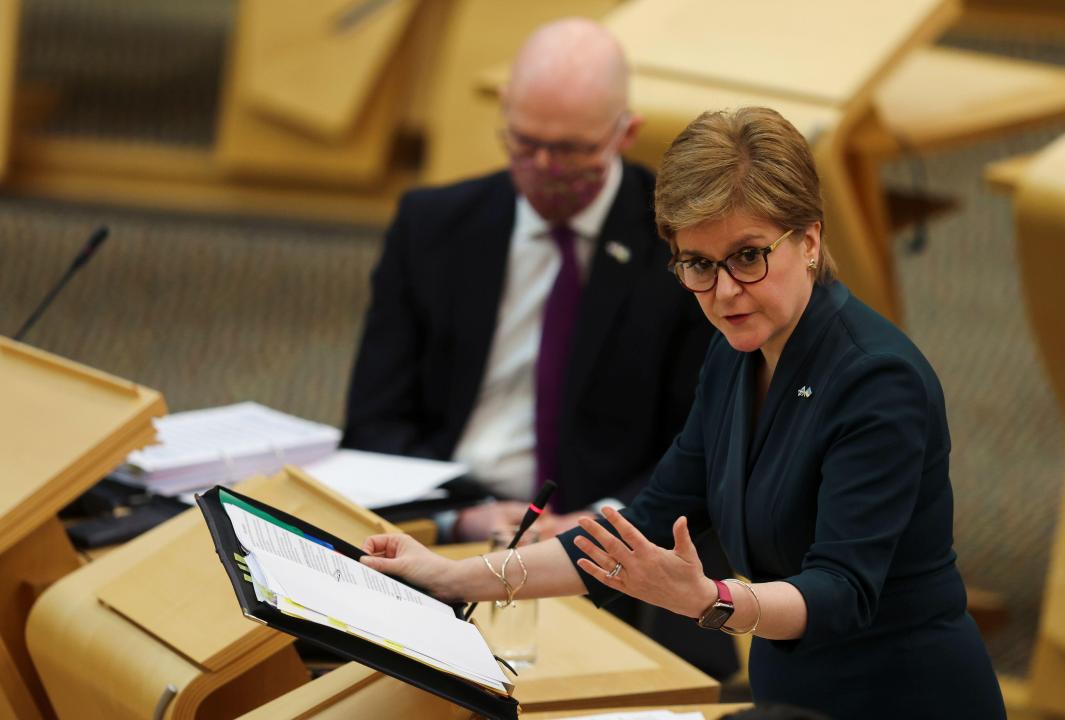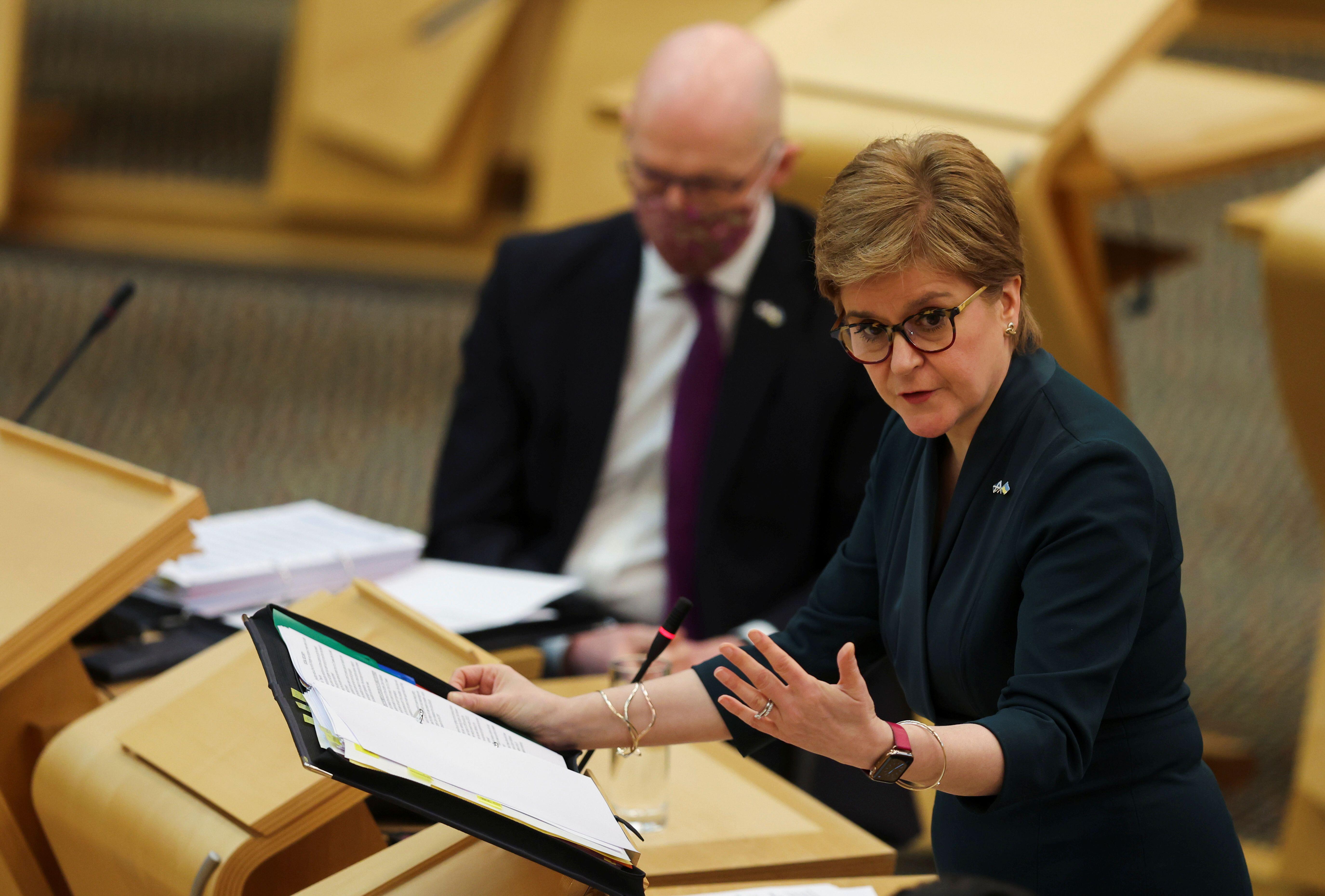Nicola Sturgeon refused to discuss her record after eight years in office when she stepped down last week. There will be ‘plenty of time’ to reflect on that later, she replied soothingly. In the days since, the First Minister’s silence has continued. But not everyone can afford to take a break from the consequences of Sturgeon’s time in office.
Four male murderers are being held in women’s prisons in Scotland today. This became possible under a policy introduced months before she rose to the role of First Minister and championed thereafter. This same policy made it possible last month for a rapist, Isla Bryson, to be briefly incarcerated in a female prison too.
Only Nicola Sturgeon will know how influential the resulting political storm was in her decision to leave office. Yet there is no doubt that that her response to the Bryson scandal exposed a great weakness. Uncertain answers to basic questions about how Bryson should be defined and treated revealed that the First Minister had made herself champion of a cause she did not understand.
When she announced her departure, Sturgeon’s words did not indicate that she would reflect upon, or take responsibility for, this profound failure. The First Minister made no apology for her recent suggestion that some unnamed critics of radical gender recognition reform were ‘probably’ also homophobes and racists. Problems with the ‘tone and tenor’ of the discussion were evidently not to be laid at her door.
It is hard to believe that the First Minister’s inability to answer basic questions – such as whether Bryson is a man or a woman – has not led to a loss of confidence in wider party circles
But the First Minister’s personal style has in fact been central to the emergence of a new coalition of women over the last eight years. These women, many of them drawn from the centre and left of politics and cutting across Scotland’s constitutional divide, felt frozen out of the political process, maligned as having views that were, in the words of Sturgeon herself, ‘not valid’.
Thanks to Sturgeon’s failure to comprehend the complexities of the issues she decided to champion, this new women’s movement has resorted to doing the work that the First Minister should have demanded of her civil servants. For Women Scotland, Women and Girls Scotland, the Scottish Feminist Network, Forth Valley Feminists, Sole Sisters – amongst many other groups and individuals – have stood their ground in the face of accusations from inside and outside Holyrood of bad faith, ignorance and illicit funding.
These groups have asked the hard questions, ones that concern the ramifications of policies that prioritise self-declared gender identity over sex. And with mounting frustration at government deafness, women began to appear at demonstrations outside Holyrood with a large handmade banner proclaiming: ‘Nicola Sturgeon, Destroyer of Women’s Rights’. Only a few days after she announced her departure, protestors unveiled a mock brass plaque with the same words outside Bute House – complete with a curtain rail and pair of curtains. Was that too much? Many of us would argue that those who seek to put such a firm personal stamp on government policy should expect firm personal feedback in return.
Meanwhile, Sturgeon used her leadership to shut these questions down. She shot back at her critics, calling protestors’ comments ‘offensive and completely unacceptable’. But when the Bryson case forced her to finally confront these issues head on, it became clear she could not provide any answers herself.
The First Minister was a leader who left women in prison housed with some of Scotland’s most dangerous men – and all the while unable to explain how her policies would prevent a future Bryson asserting his right to watch girls on a college course undress. Many women would say that this is what ‘completely unacceptable’ really looks like.
The Gender Recognition Reform (GRR) Bill will stand as a monument to the current style of government: preferential access and generous funding for a small group of favoured organisations and individuals; selectively chosen soundbites over critical analytical rigour and a hypersensitive, personal objection to criticism.
A test now lies ahead for Scotland’s political class. Having thrown their weight behind the GRR Bill, it is in the interests of Scottish Labour and the Liberal Democrats to play down its relevance to her downfall. And yet it is hard to believe that the First Minister’s inability to answer basic questions – such as whether Bryson is a man or a woman – has not led to a loss of confidence in wider party circles. Other politicians might wonder how much better they would have fared in the same spotlight. And as the race to be the next leader of the Scottish National party gets underway, we will have to judge these candidates carefully on this issue.
Still, I do believe the First Minister when she says her decision to go has not been driven by any sense of failure here as, even now, she is evidently unable to see it. In saying she regretted not having brought ‘a more rational approach’ to this topic, she did not appear to think there had been any failure of rationality on her own part. When asked about her plans, she appeared to hint that as a backbench MSP, she would continue to lobby for the same policies.
What Sturgeon cannot see, however, most of the rest of the country can. ‘Rapist’ is not a new gender. Bryson is a man. The women who say that sex matters, in both policy and in law, are not the irrational ones.







Comments